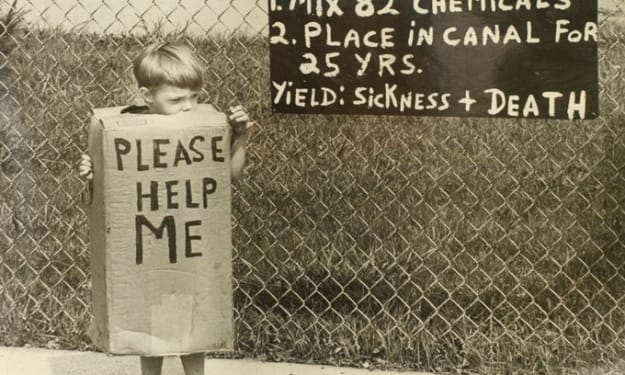The origin history of Father's Day & People Responds a Date
The history of Father's Day dates back over a century and has evolved through various events and initiatives, and How The Community Responds.

The origins of Father's Day can be traced back to the early 20th century in the United States. Here is a detailed account of the birth and development of Father's Day:
1. Early Celebrations:
In 1908, a church service dedicated to fathers was held in Fairmont, West Virginia. It was organized by Grace Golden Clayton to commemorate the lives of the 361 men who died in the Monongah Mining Disaster, one of the deadliest mining accidents in American history.
Around the same time, Sonora Smart Dodd, from Spokane, Washington, was inspired by Mother's Day celebrations and felt the need to honor fathers as well. Her own father, William Jackson Smart, a Civil War veteran, had raised her and her five siblings single-handedly. She proposed the idea of a Father's Day celebration to her local church.
2. The First Official Celebration:
The first official Father's Day celebration took place on June 19, 1910, in Spokane, Washington. The mayor of Spokane, along with various community leaders and organizations, supported the idea.
A special church service was held at the Spokane YMCA, and roses were handed out to fathers in attendance. Sonora Dodd's efforts gained attention and recognition, leading to the establishment of the first official Father's Day.
3. State and National Recognition:
In the following years, the concept of Father's Day gained popularity and spread across the United States. Several states started to observe the day unofficially.
In 1916, President Woodrow Wilson attempted to make Father's Day an official holiday, but the idea did not gain sufficient traction in Congress.
In 1924, President Calvin Coolidge urged state governments to observe Father's Day, but it still remained an unofficial celebration.
4. Continued Advocacy:
Despite initial setbacks, people continued to advocate for the establishment of Father's Day as a national holiday.
A National Father's Day Committee was formed in the 1930s in New York City, with the aim of promoting the holiday and encouraging its widespread celebration.
Organizations such as the Lions Clubs International and the Father's Day Council were also actively involved in supporting and promoting Father's Day.
5. Congressional Recognition:
In 1957, Senator Margaret Chase Smith of Maine wrote a proposal advocating for the official recognition of Father's Day.
In 1966, President Lyndon B. Johnson issued a presidential proclamation designating the third Sunday in June as Father's Day.
Finally, in 1972, President Richard Nixon signed a law officially recognizing Father's Day as a national holiday, to be celebrated annually on the third Sunday in June.
6. Global Adoption:
The concept of Father's Day gradually spread beyond the United States and gained international recognition.
Today, Father's Day is celebrated in various countries around the world, although the dates and customs may differ. Many countries observe Father's Day on the third Sunday in June, similar to the United States.
Father's Day has become a day to honor and appreciate fathers and father figures, acknowledging their contributions to their families and society. It serves as an opportunity to express gratitude, love, and respect for the important role fathers play in the lives of their children.
and, what is the response and response of the community regarding the father's day
The community response to Father's Day has been generally positive and supportive. Over the years, Father's Day has gained recognition and acceptance as a special occasion to honor and appreciate fathers and father figures. Here are some ways in which the community responds to Father's Day:
1. Celebratory Spirit:
Communities embrace Father's Day with a celebratory spirit, similar to other holidays. People plan activities and gatherings to make the day special for fathers.
Families organize picnics, barbecues, or special meals to spend quality time together and show their appreciation.
Many communities host events, such as Father's Day parades, sports tournaments, and charity fundraisers, to bring people together and celebrate fatherhood.
2. Gift-Giving:
Similar to other holidays, gift-giving plays a significant role in the community's response to Father's Day. People buy or create thoughtful gifts to express their love and gratitude to their fathers.
Common Father's Day gifts include personalized items, such as custom-made cards, photo albums, or engraved items, as well as practical gifts like tools, gadgets, or clothing that align with fathers' interests and hobbies.
Local businesses often promote special Father's Day offers, and communities support them by shopping for gifts or experiences.
3. Social Media Tributes:
In the digital age, social media platforms have become a popular way for the community to respond to Father's Day. Many individuals and organizations post heartfelt messages, photos, and videos dedicated to their fathers, using hashtags like #FathersDay or #DadAppreciation.
Social media provides a platform for people to publicly acknowledge and share their love and appreciation for their fathers, allowing the community to witness and participate in these expressions of gratitude.
4. Community Involvement:
Schools, community centers, and local organizations often arrange Father's Day events and activities to engage the community.
Schools may organize special assemblies or performances where students express their appreciation through songs, poems, or speeches dedicated to fathers.
Community centers or local clubs might host workshops or seminars focusing on fatherhood, parenting, and family well-being, providing valuable resources and support for fathers and families.
5. Volunteer and Charity Efforts:
Many communities engage in volunteer and charity efforts as part of their response to Father's Day.
Organizations and individuals organize initiatives to support fathers in need or honor the memory of fathers who have passed away.
Community members may volunteer at homeless shelters, nursing homes, or organizations supporting single fathers, offering their time and assistance to make Father's Day a meaningful experience for everyone.
Overall, the community's response to Father's Day reflects a collective desire to honor, appreciate, and celebrate fathers and their contributions to family and society. It fosters a sense of unity, gratitude, and love within communities, strengthening the bond between fathers and their loved ones.
And, for that Moment I want to wish, happy father's day, to all fathers in the world, I hope you are the best fathers for their families, Thank You.
About the Creator
Mukhtamhir Thahir
The freedom of a person to write down everything he thinks on paper, is a freedom of thought and a form of logical development in the way of thinking.






Comments
There are no comments for this story
Be the first to respond and start the conversation.